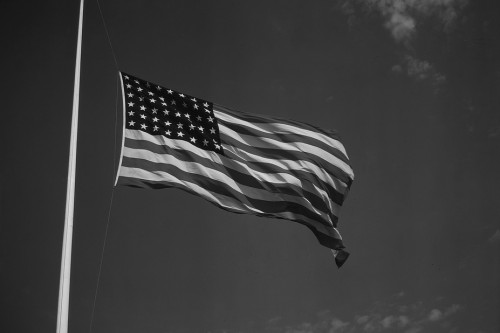The so-called real world of men and money and power hums merrily along in a pool of fear and anger and frustration and craving and worship of self. Our own present culture has harnessed these forces in ways that have yielded extraordinary wealth and comfort and personal freedom. The freedom all to be lords of our tiny skull-sized kingdoms, alone at the center of all creation. This kind of freedom has much to recommend it. But of course there are all different kinds of freedom, and the kind that is most precious you will not hear talked about much in the great outside world of wanting and achieving. The really important kind of freedom involves attention and awareness.
—David Foster Wallace, 2005, This Is Water
Dave’s Parable
David Foster Wallace began his famous 2005 Kenyon College commencement speech, This Is Water, with a yarn about two young fish swimming along who happen to meet an old fish swimming the other way. The old fish nods at them and says, “Morning, boys. How’s the water?” The two young fish swim on for a bit, then one of them looks over at the other and asks, “What the hell is water?”
The point of Wallace’s parable is obvious: the things that should be the most obvious to us are often not that obvious at all, i.e., we get so caught up and immersed in our daily activities we don’t notice what’s going on around us. Or worse, we don’t notice what’s going on inside us: inside our heads, inside our hearts. In the case of the two young fish, they were unaware of their environment: they were unaware of the water that surrounded them. The water was something that was everywhere—essential for their survival—yet they were unaware it existed.
What’s Your Water?
But how does this apply to our lives? Surely we’re all bright enough to know which things are essential to our survival, right? And certainly we’re all bright enough to know we need air to breathe and food to eat, just like the fish needed water to live, right?
Perhaps our proverbial water is much deeper, more complex. Perhaps it’s also as obvious as the water should have been to the young fish.
Perhaps our water includes complex concepts like happiness, fulfillment, and freedom. While these things are seemingly abstract, perhaps they are more obvious than we realize: perhaps they are essential to our survival.
Perhaps we need freedom like the fish need water.
What’s Freedom?
Freedom is an expansive concept: difficult to define, explain, or dissect. It means different things to different people, and it takes on different meanings within different contexts.
Freedom is more difficult to discuss as an event, and thus must be discussed as an abstraction. Perhaps that’s why Jonathan Franzen, in his sprawling fourth novel, Freedom, wrote about the concept using stories, characters, and a forty-year narrative: he could compare and contrast freedom with ideas like loneliness, love, desire, pain and solitude—none of which explain freedom, but perhaps together they begin to explain its essence.
A Certain Kind of Freedom
Ergo, this essay is about a certain kind of freedom: awareness. More specifically it’s about acute awareness: an awareness of what’s going on around you, an awareness of what’s going on inside you.
This type of awareness—one in which you must constantly be attentive—is the most precious kind of freedom: It is, in many respects, the choice between life and death. It’s the difference between living a meaningful life or enduring a meaningless life.
We realize we run the risk of sounding like a lecture from a parent, and it’s easy to dismiss this topic as a heap of esoteric woo-woo because it makes us feel better not to think about such things—it makes us feel better to live our lives unaware. But this kind of unconscious living does not make us free: it makes us a slave to the world around us, reacting to our impulses without thinking.
The Minimalist’s Awareness
This is yet another reason why minimalism is so appealing to so many: It is a tool to remove many of the obstructions so we can focus on what’s important. It is a tool to rid ourselves of superfluous excess in favor of a meaningful life. It is a tool to take a seemingly intricate and convoluted world—cluttered with its endless embellishments—and make it more simple, more easy, more real.
It is unimaginably difficult to remain conscious and attentive: surrounded by the trappings and obstructions of the tiring world around us, it is difficult not to regress into a zombie state. But it is crucial to become and remain aware, and to remind yourself that this is your life: your life is important, you can make a difference, you have a purpose—one that extends beyond yourself.
“Awareness” is the third installment of a three-part essay series, Conscious Freedom.


